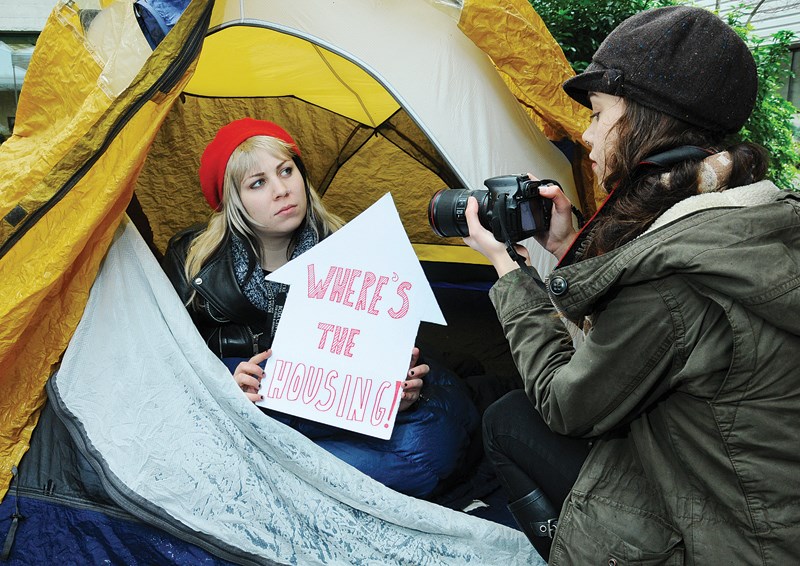After 16 months of debate, District of North Vancouver council unanimously passed a strategy to create between 600 and 1,000 affordable rental units over the next decade.
Council struck unanimity after splitting 5-2 on a Crown Street residential development.
“I can’t help but enjoy the juxtaposition,” Coun. Roger Bassam said, suggesting his colleagues were inconsistent in calling for affordability while advocating a moratorium on residential development.
Rather than inconsistency, Coun. Jim Hanson said it was simply improvident to build housing amid a transit crisis.
“I don’t see an inconsistency,” he said, urging council to support the plan.
Because the market “will not ordinarily” provide affordable rental, a district report suggested council could leverage height and density limits, as opposed to community amenity contributions.
Foregoing that cash may place a bigger burden on taxpayers, Bassam noted.
“You’ve got to tell me how much this is going to cost and how the taxpayer’s going to pay for it. Does it mean your property taxes go up?”
The issue shouldn’t be about money, according to Coun. Lisa Muri.
“How do we put a price on not doing this up against a family losing their home?”
Rather than relying solely on density and height bonuses, Muri suggested council should collectively “hold the feet of the developers to the fire.”
Coun. Robin Hicks differed.
“You’re not going to be able to hold developers over a barrel and say, ‘We’re not going to give you any concessions, you just build it and give us affordable housing.’”
Coun. Mathew Bond took issue with Muri’s comments about the windfall enjoyed by developers in recent years.
“Anyone here that owns a single-family home shared in that same amount of wealth that was generated,” he said, calling for a range of housing.
“We need to constantly renew our housing stock so that there’s a wide spectrum,” he said.
Given the high price of land and community aversion to height and density, council makes the best deal possible in “limited negotiation space,” Mayor Richard Walton said.
The issue has been exacerbated by the absence of a national housing policy, according to Walton.
“The federal government and the provincial government are taking stabs at it, but the stabs tend to be throwing a bunch of money at it in one budget cycle and then sort of backing away,” he said. “That’s better than not throwing a bunch of money at it.”
An investment in adequate, affordable housing is a wise one, according to Coun. Doug MacKay-Dunn.
“Derelict housing will in fact yield a generation of maladapted children, future delinquents, and in some cases, career criminals.”
Despite relatively consistent homeless counts, social service providers “report a growing number … at risk of homelessness,” a district report stated.
Council also passed a tenant relocation policy, which provides a framework for council to negotiate three months of free rent and moving expenses for displaced tenants. The financial impact is estimated to be between $5,000 and $10,000 per unit.
“Once again we’re being dragged into this abyss of unfunded provincial programs and responsibilities because our provincial government doesn’t step up,” Bassam said.
The district needs to ensure the policy accounts for the entire community, according to Heather Fowler, who spoke from the gallery and introduced herself as “another taxpaying, displaced resident” of the municipality.
“Anyone who’s affected and forced to move out because of government decisions to demolish buildings should be given every form of help,” she told council. “I shouldn’t be homeless because of a government decision.”



